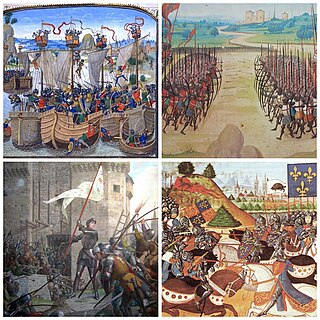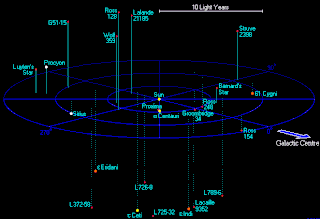| |||||
| Decades: | |||||
|---|---|---|---|---|---|
| See also: | |||||
| |||||
| Decades: | |||||
|---|---|---|---|---|---|
| See also: | |||||

The terms anno Domini (AD) and before Christ (BC) are used to label or number years in the Julian and Gregorian calendars. The term anno Domini is Medieval Latin and means "in the year of the Lord", but is often presented using "our Lord" instead of "the Lord", taken from the full original phrase "anno Domini nostri Jesu Christi", which translates to "in the year of our Lord Jesus Christ".
The Julian calendar, proposed by Julius Caesar in AUC 708, was a reform of the Roman calendar. It took effect on 1 January AUC 709 , by edict. It was designed with the aid of Greek mathematicians and astronomers such as Sosigenes of Alexandria.

Pyotr Ilyich Tchaikovsky was a Russian composer of the Romantic period. He was the first Russian composer whose music would make a lasting impression internationally. He was honored in 1884 by Tsar Alexander III and awarded a lifetime pension.

The Thirty Years' War was a conflict fought largely within the Holy Roman Empire from 1618 to 1648. Considered one of the most destructive wars in European history, estimates of total deaths caused by the conflict range from 4.5 to 8 million, while some areas of Germany experienced population declines of over 50%. Related conflicts include the Eighty Years' War, the War of the Mantuan Succession, the Franco-Spanish War, and the Portuguese Restoration War.

A year is the orbital period of a planetary body, for example, the Earth, moving in its orbit around the Sun. Due to the Earth's axial tilt, the course of a year sees the passing of the seasons, marked by change in weather, the hours of daylight, and, consequently, vegetation and soil fertility. In temperate and subpolar regions around the planet, four seasons are generally recognized: spring, summer, autumn and winter. In tropical and subtropical regions, several geographical sectors do not present defined seasons; but in the seasonal tropics, the annual wet and dry seasons are recognized and tracked.

Bachelor of Arts is a bachelor's degree awarded for an undergraduate program in the arts, or in some cases other disciplines. A Bachelor of Arts degree course is generally completed in three or four years, depending on the country and institution.
The Kali Yuga, in Hinduism, is the fourth and worst of the four yugas in a Yuga Cycle, preceded by Dvapara Yuga and followed by the next cycle's Krita (Satya) Yuga. It is believed to be the present age, which is full of conflict and sin.
A bachelor's degree or baccalaureate is an undergraduate academic degree awarded by colleges and universities upon completion of a course of study lasting three to six years. The two most common bachelor's degrees are the Bachelor of Arts (BA) and the Bachelor of Science. In some institutions and educational systems, certain bachelor's degrees can only be taken as graduate or postgraduate educations after a first degree has been completed, although more commonly the successful completion of a bachelor's degree is a prerequisite for further courses such as a master's or a doctorate.

Christine Marie Evert, known as Chris Evert Lloyd from 1979 to 1987, is an American former world No. 1 tennis player. She won 18 Grand Slam singles championships and three doubles titles. She was the year-end world no. 1 singles player seven times. Overall, Evert won 157 singles titles and 32 doubles titles.

The CAF Africa Cup of Nations (AFCON), officially French: Coupe d'Afrique des Nations (CAN), also referred to as TotalEnergies Africa Cup of Nations after its headline sponsor, and sometimes as African Cup of Nations, is the main international men's association football competition in Africa. It is sanctioned by the Confederation of African Football (CAF), and was first held in 1957. Since 1968, it has been held every two years, switching to odd-numbered years in 2013. The current champions are Algeria, who won their second title at the 2019 tournament in Egypt.

The Human Development Index (HDI) is a statistic composite index of life expectancy, education, and per capita income indicators, which are used to rank countries into four tiers of human development. A country scores a higher HDI when the lifespan is higher, the education level is higher, and the gross national income GNI (PPP) per capita is higher. It was developed by Pakistani economist Mahbub ul Haq and was further used to measure a country's development by the United Nations Development Programme (UNDP)'s Human Development Report Office.

Doctor of Medicine is a medical degree, the meaning of which varies between different jurisdictions. In the United States, and some other countries, the M.D. denotes a professional graduate degree. This generally arose because many in 18th-century medical professions trained in Scotland, which used the M.D. degree nomenclature. In England, however, Bachelor of Medicine, Bachelor of Surgery was used and eventually in the 19th century became the standard in Scotland too. Thus, in the United Kingdom, Ireland and other countries, the M.D. is a research doctorate, higher doctorate, honorary doctorate or applied clinical degree restricted to those who already hold a professional degree(Bachelor's/Master's /Doctoral) in medicine; in those countries, the equivalent professional to the North American and some others use of M.D. is still typically titled Bachelor of Medicine, Bachelor of Surgery (M.B.B.S.).

A secondary school describes an institution that provides secondary education and also usually includes the building where this takes place. Some secondary schools provide both lower secondary education and upper secondary education i.e. levels 2 and 3 of the ISCED scale, but these can also be provided in separate schools, as in the American middle and high school system. In the UK, elite public schools typically admit pupils between the ages of 13 and 18. UK state schools accommodate pupils between the ages of 11-16 or 11–18.

The Hundred Years’ War was a series of armed conflicts between the kingdoms of England and France during the Late Middle Ages. It originated from disputed claims to the French throne between the English royal House of Plantagenet and the French royal House of Valois. Over time, the war grew into a broader power struggle involving factions from across Western Europe, fueled by emerging nationalism on both sides.

The Seven Years' War (1756–1763) is widely considered to be the first global conflict in history, and was a struggle for world supremacy between Great Britain and France. In Europe, the conflict arose from issues left unresolved by the War of the Austrian Succession (1740–1748), with Prussia seeking greater dominance. Long-standing colonial rivalries pitting Britain against France and Spain in North America and the Caribbean islands were fought on a grand scale with consequential results. In Europe, the war broke out over territorial disputes between Prussia and Austria, which wanted to regain Silesia after it was captured by Prussia in the previous war. Britain, France and Spain fought both in Europe and overseas with land-based armies and naval forces, while Prussia sought territorial expansion in Europe and consolidation of its power.

The age of consent in the United States is the age at which a person may legally consent to engage in sexual activity. Each state and territory sets the age of consent either by statute or the common law applies, and there are several federal statutes related to protecting minors from sexual predators. Depending on the jurisdiction, the legal age of consent is between 16 and 18. In some places, civil and criminal laws within the same state conflict with each other.
A Bachelor of Science is a bachelor's degree awarded for programs that generally last three to five years.
The Gregorian calendar is the calendar used in most of the world. It was introduced in October 1582 by Pope Gregory XIII as a modification of, and replacement for, the Julian calendar. The principal change was to space leap years differently so as to make the average calendar year 365.2425 days long, more closely approximating the 365.2422-day 'tropical' or 'solar' year that is determined by the Earth's revolution around the Sun. The rule for leap years is:
Every year that is exactly divisible by four is a leap year, except for years that are exactly divisible by 100, but these centurial years are leap years if they are exactly divisible by 400. For example, the years 1700, 1800, and 1900 are not leap years, but the years 1600 and 2000 are.
In contemporary history, the third millennium of the anno Domini or Common Era in the Gregorian calendar is the current millennium spanning the years 2001 to 3000. Ongoing futures studies seek to understand what is likely to continue and what could plausibly change in the course of this period and beyond.

A light-year, alternatively spelt lightyear, is a unit of length used to express astronomical distances and is equivalent to about 9.46 trillion kilometers (9.46×1012 km) or 5.88 trillion miles (5.88×1012 mi). As defined by the International Astronomical Union (IAU), a light-year is the distance that light travels in vacuum in one Julian year (365.25 days). Because it includes the word "year", the term light-year is sometimes misinterpreted as a unit of time.